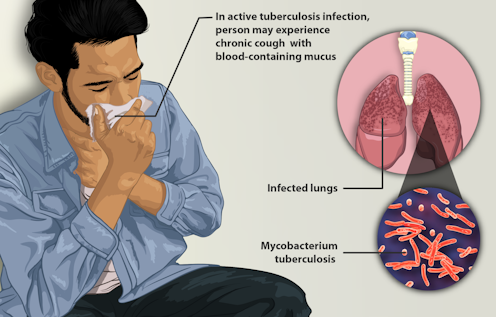
Indonesia is still struggling to fight tuberculosis (TB), with the second-highest number of cases worldwide.
In 2021, one study estimated Indonesia had a staggering incidence rate of TB 759 cases per 100,000 people – more than double the World Health Organization’s 2021 estimate 354 cases per 100,000 Indonesians. That compares with a global average of 134 per 100,000 people.
Undeterred by the challenges posed by TB, Indonesia has set ambitious targets of reducing TB cases to 190 per 100,000 individuals by 2024 and to 65 per 100,000 by 2030.
With a staggering number of TB cases and those ambitious targets, the country urgently requires increased funding to combat this potentially deadly but preventable communicable disease.
Currently, insufficient funding is a significant obstacle in Indonesia to fight against TB. Sustained adequate funding would ensure the availability of essential resources, diagnostic tools, medications and healthcare services necessary to prevent, diagnose and treat TB effectively.
Lack of funding risks more people getting sick
Known as the TB financing gap, lack of funding can lead to inadequate diagnostic tools and equipment provision, resulting in delayed or inaccurate diagnoses. These delays have grave consequences.
Studies have shown delayed treatment of TB increases disease transmission, posing a greater risk to individuals and communities.
Worldwide, 1.6 million people died from TB in 2021, making it the 13th leading cause of death – and the second leading infectious killer after COVID-19.
According to Indonesia’s national strategy, the country needs to spend Rp47.3 trillion (US$3 billion) from 2020 to 2024 to control TB. However, the budget availability for that period is only around Rp15.7 trillion ($990 million).
Indonesia also lacks access to financing help pay for those extra control measures.
The WHO Global Tuberculosis Report said Indonesia needs US$429 million for TB prevention, diagnosis and treatment and US$87 million for tuberculosis care – a total of US$516 million. But it has only secured only US$111 million.
In fact, WHO data shows that since 2009, Indonesia has consistently failed to meet the necessary TB financing requirements, financing only 41% of the needed TB programs each year, on average.
This financing gap restricts the availability of essential medications for TB treatment. This issue is particularly concerning, as drug-resistant strains of TB are emerging, further complicating treatment efforts.
The pandemic hit TB funding
The COVID-19 pandemic has worsened the TB financing gap in Indonesia.
The government had to change its priorities during the pandemic, reallocating its health budget for COVID-19 treatment and mitigation efforts.
WHO said Indonesia’s TB funding decreased around 8.7% between 2019 and 2020.
Upon closer examination,Two significant reasons emerge related to factors contributing to the funding gap.
First, the lack of adequate fund to cover the costs of TB services. This limits the reach and impact of programs.
There is also a tendency among patients to seek diagnosis and treatment at hospitals, rather than local primary healthcare centres and clinics. This leads to a heavier financial burden on the National Health Insurance system, because treatment costs in hospitals are more expensive.
Second, the lack of private sector involvement in diagnosis, reporting and treatment further compounds the problem, hindering progress.
What should we do now?
Increasing domestic financing for TB programs is crucial.
The Indonesian government should allocate a higher proportion of the national budget to prevent and control TB, as well as to conduct TB-related research.
Integrating externally-funded TB programs into the National Health Care system would ensure sustainability and align them with the national healthcare framework.
Strengthening the healthcare system is paramount, including bolstering the capacity and infrastructure of local health centres and clinics, training healthcare professionals, and improving diagnostic and treatment services.
Additionally, exploring innovative financing pathways – such as engaging the private sector through public-private partnerships and leveraging international funding mechanisms – could provide the necessary resources to drive progress.
Closing the TB financing gap is essential, not only to improve patients’ health, but to also safeguard the well-being and socioeconomic stability of communities as a whole.
Indonesia must pursue strategic actions to overcome these challenges.
Para penulis tidak bekerja, menjadi konsultan, memiliki saham atau menerima dana dari perusahaan atau organisasi mana pun yang akan mengambil untung dari artikel ini, dan telah mengungkapkan bahwa ia tidak memiliki afiliasi di luar afiliasi akademis yang telah disebut di atas.
This article was originally published on The Conversation. Read the original article.







